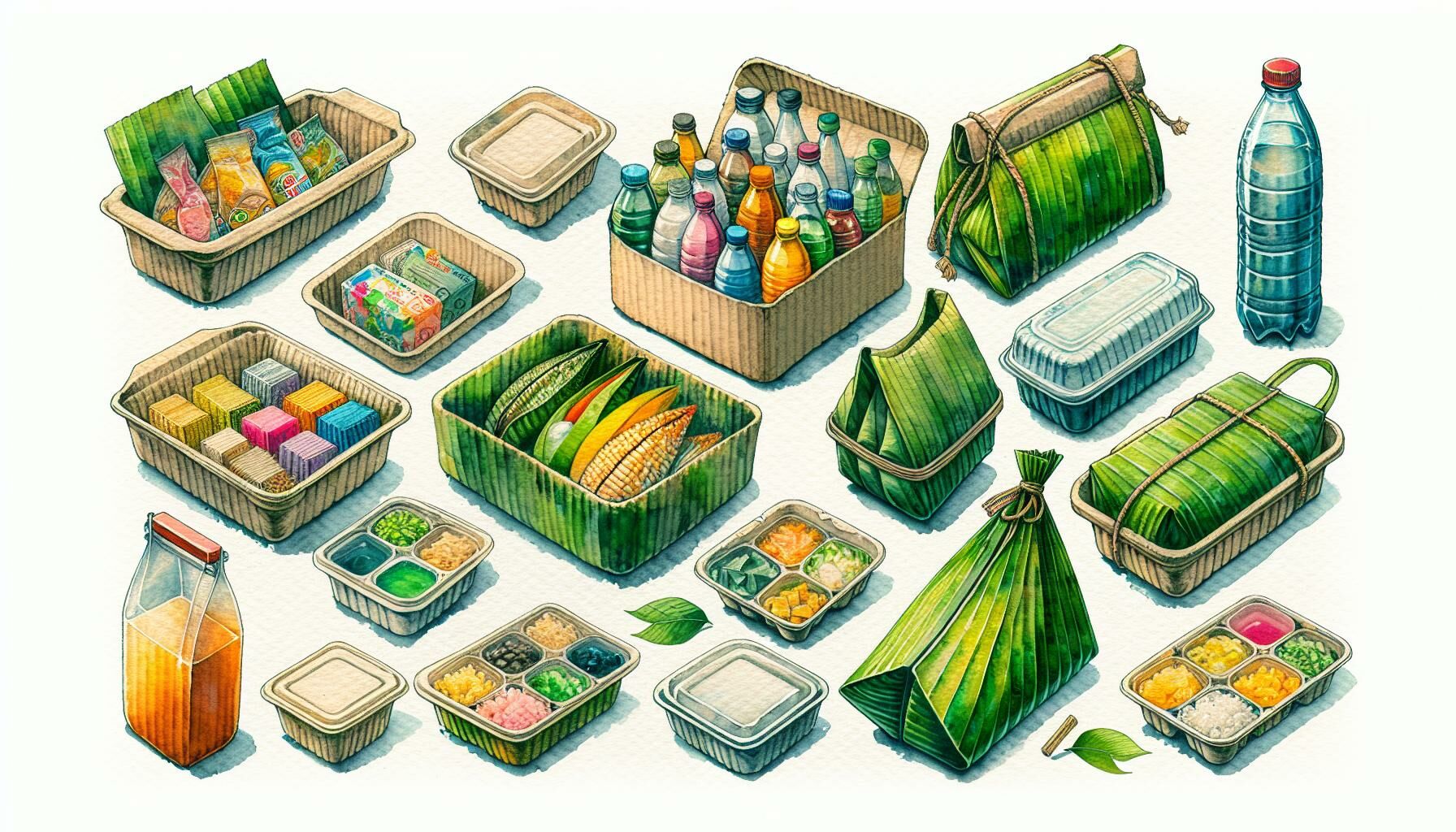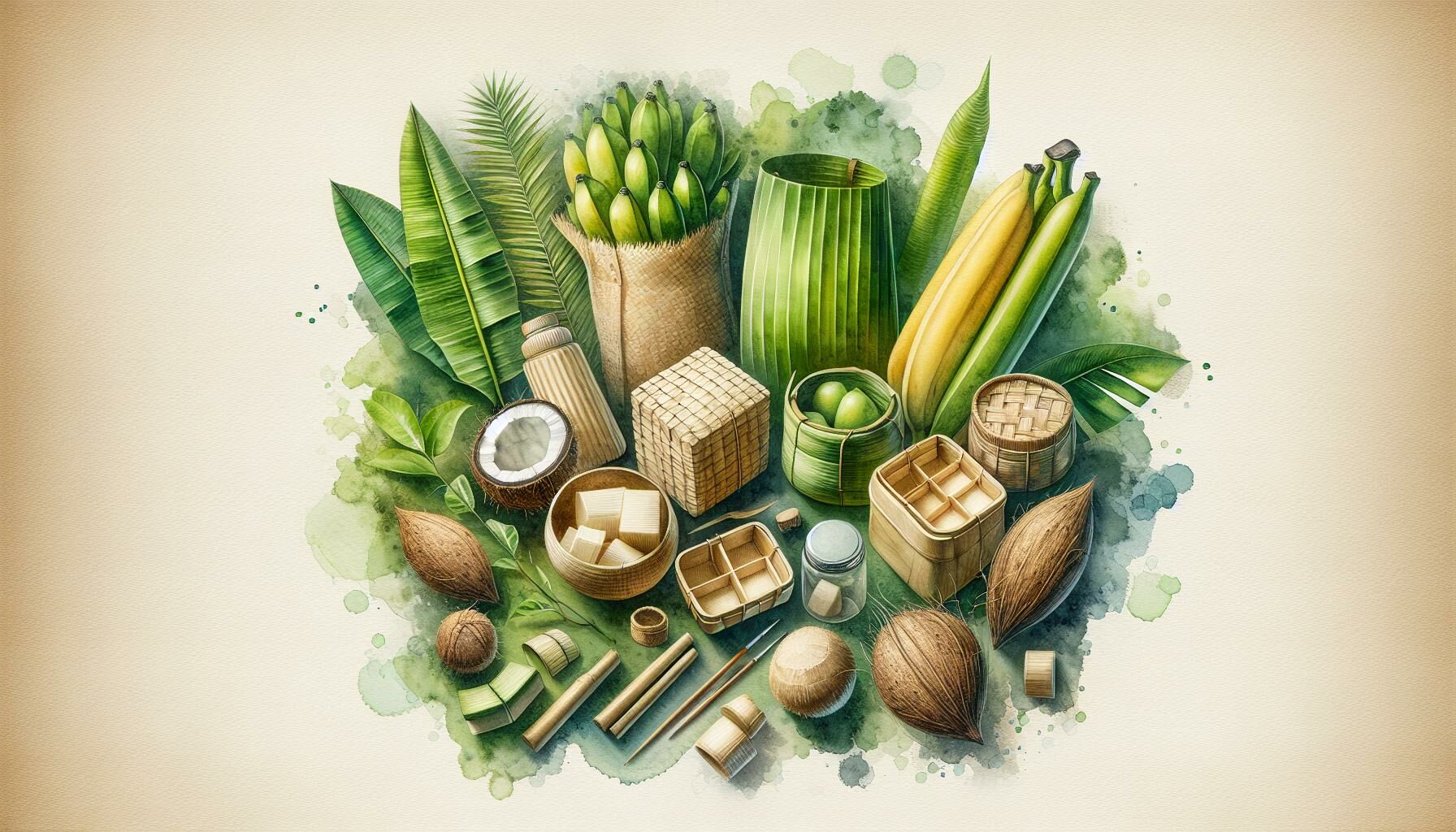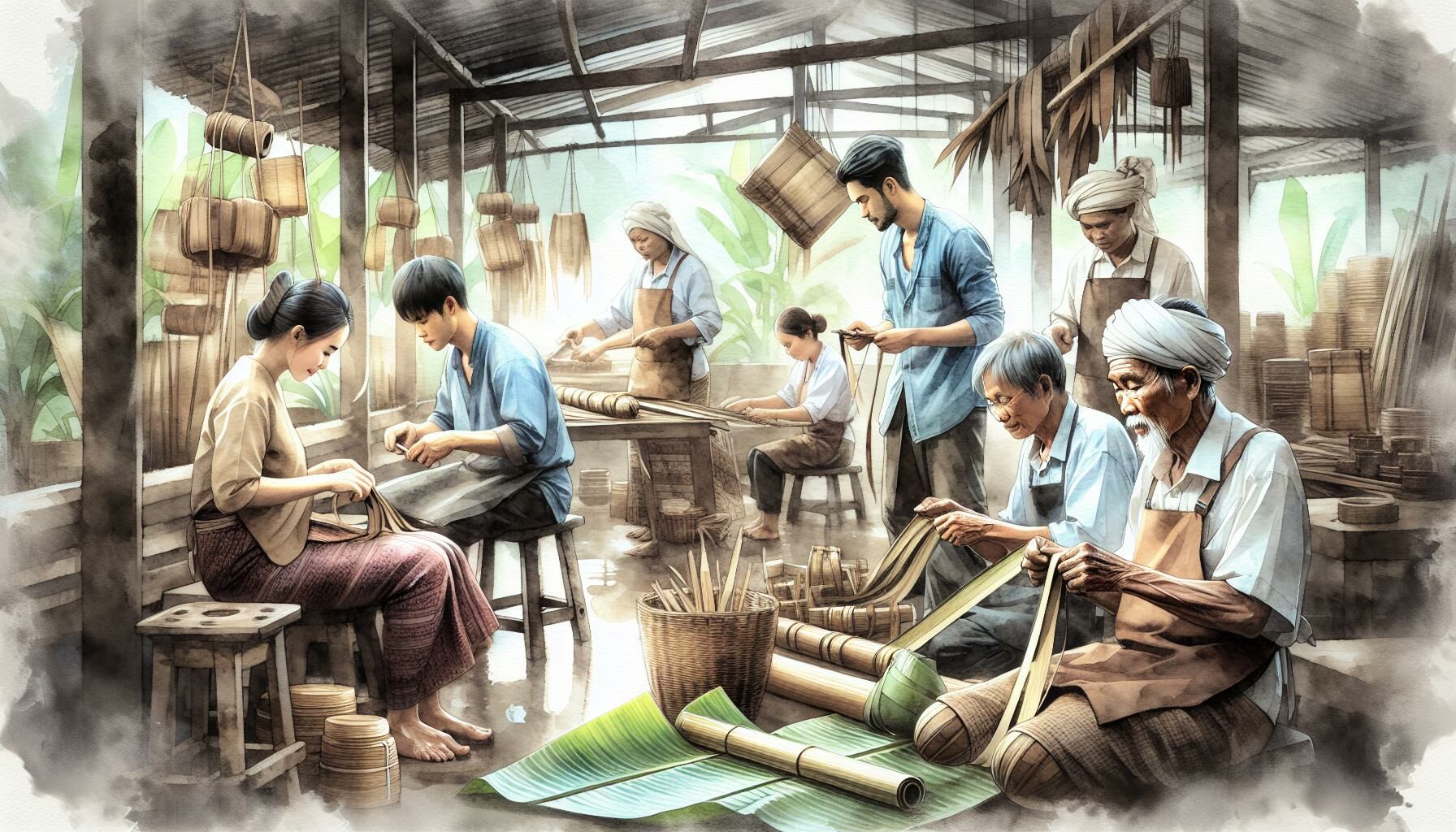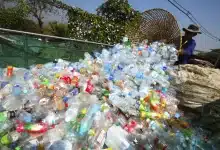Thais’ methods for fighting plastic pollution: A Thai-made solution

Have you been informed about the recent developments in Thailand? The situation is rather noteworthy. Thailand, celebrated for its stunning beaches and vibrant natural landscapes, faces a significant challenge with plastic pollution. This issue has become critical as recycling efforts are not sufficient to manage waste accumulation, which includes contributions from both domestic and international sources.
However, there is an encouraging aspect to this scenario: individuals in Thailand are devising ingenious solutions to combat this environmental problem. These initiatives are not only beneficial for ecological sustainability but also provide employment opportunities for individuals seeking meaningful work. Indeed, it is quite an inspiring narrative.
Thailand addresses its plastics problem
Working towards change
Thailand has engaged in a proactive approach to its plastic pollution crisis, laying the groundwork for sustainable environmental stewardship. Initiatives spearheaded by government agencies, the private sector, and local communities underline a commitment to addressing the problem head-on. Projects such as “Upcycling the Oceans Thailand,” started in 2017, exemplify a Thai-made solution, transforming plastic waste collected from the sea into valuable products. This initiative not only reduces waste but also promotes the circular economy, a cornerstone in the fight against plastic pollution.
The collaboration between the Tourism Authority of Thailand, PTT Global Chemical Public Company Limited (GC), and the ECOALF Foundation channels a united front towards cleaner oceans, underscoring the synergy necessary for tangible outcomes. Adopting a circular economy mindset, Thailand harnesses innovation and technology to turn threats into opportunities. The IPPIN programme empowers Thai innovators to develop solutions that reduce plastic waste and greenhouse gas emissions, highlighting the country’s drive towards sustainability.
NGOs offer education and action hand-in-hand.
In Thailand, a commendable collection of non-governmental organisations (NGOs) is actively engaging in combating plastic pollution. These organisations are diligently working to educate both residents and visitors on the detrimental effects of plastic waste on marine ecosystems and human health. Entities such as the Thailand Biodiversity Network Alliance are at the forefront, coordinating efforts for mangrove forest clean-ups and conducting educational workshops aimed at promoting proper waste management practices. Their objective is to enhance environmental awareness and motivate individuals to contribute positively towards conservation efforts.
Furthermore, these NGOs are extending their impact beyond education by mobilising communities for direct action. They organise large-scale clean-up events that attract thousands of volunteers ready to clear beaches and urban areas of litter. Supporting this cause, corporations like INSEE Ecocycle and governmental agencies, including the Industrial Estate Authority of Thailand, have also come forward to participate actively. This collective effort underscores a significant advancement in Thailand’s approach to minimising plastic pollution.
These initiatives demonstrate the power of collaboration between various sectors in addressing environmental challenges. By leveraging Thai cooperative spirit, these actions not only make a substantial difference locally but also serve as inspirational models for global environmental strategies.
Sustainable packaging

Sustainable packaging stands at the forefront of Thailand’s battle against plastic pollution, embodying a Thai-made solution that integrates traditional wisdom. It involves the creation of packaging solutions from materials that are biodegradable, recyclable, and capable of reducing environmental harm throughout their lifecycle. This approach not only seeks to minimise the ecological footprint of packaging but also promotes a circular economy where materials are kept in use for as long as possible.
In Thailand, the transition towards sustainable packaging is driven by an understanding of the detrimental effects that single-use plastics have on the oceans, with up to 89% of all oceanic plastic waste stemming from such items. The response has been to leverage eco-friendly materials, including recycled paper and biodegradable clamshells, to manufacture green meal boxes and other packaging needs. This shift is instrumental in addressing the environmental impact of takeaway food, a significant contributor to Thailand’s plastic waste dilemma.
Thailand’s strategy of amalgamating age-old practices with modern technology serves as a pioneering model for combating plastic pollution. This approach exemplifies how integrating indigenous knowledge with can have a substantial impact on global environmental challenges.
Sustainable packaging in Thailand
Banana Leaf
In Thailand, banana leaf emerges as a traditional to plastic pollution. Utilised for centuries in Thai culture, the banana leaf is now repurposed for packaging, offering a biodegradable alternative to single-use plastics. Its natural durability and waterproof qualities make it an ideal material for wrapping a variety of goods, especially foods. With zero waste and full biodegradability, banana leaves represent not just tradition but also Thailand’s commitment to sustainable practices.
Pandan leaf
Similarly, pandan leaf stands out for its aromatic and resilient properties, serving as another eco-friendly packaging solution. Thai-made for plastic pollution, pandan leaves are crafted into containers and wraps, infusing culinary offerings with their distinct scent. Beyond packaging, pandan leaf also plays a role in cultural artefacts, underscoring the interconnectedness of sustainability and heritage. This approach not only mitigates waste but also aligns with consumer preferences for natural and sustainable materials.
Bamboo
Bamboo is swiftly advancing in terms of growth and is being transformed into products such as utensils, straws, and containers. It is emerging as a pivotal element in Thailand’s campaign against plastic pollution. Bamboo is exceptionally durable, allowing for numerous reuses, and upon its lifecycle completion, it decomposes naturally without leaving detrimental residues. Moreover, the cultivation of bamboo does not necessitate the use of aggressive chemicals or fertilizers. Consequently, bamboo not only plays a significant role in Thailand’s efforts to mitigate plastic waste but also serves as an exemplary demonstration of how natural materials can substantially contribute to the sustainability and preservation of our planet’s environment.
Coconut
Thailand is abundantly endowed with coconuts, correct? It has been discovered that these coconuts transcend their status as mere culinary delights. The shells, traditionally discarded as waste, are being repurposed into products such as bowls, cups, and packaging materials. This strategy is highly commendable for its dual benefits: reducing plastic consumption and aligning with recycling principles. It exemplifies Thailand’s inventive approach to utilising natural resources to combat plastic pollution. Employing coconuts for packaging serves a dual purpose: it contributes to environmental conservation while also optimising the use of available resources.
Advantages of a Thai-made solution
Benefits to the environment and Thai people
Thailand is leading the charge against plastic pollution with some super cool ideas, turning trash into treasure that’s good for the planet. They’re getting creative and using stuff like banana leaves, bamboo, and coconut shells instead of those pesky synthetic packaging materials. This move is a big win for the ocean critters and their homes, not to mention keeping Thailand’s stunning landscapes pristine for visitors. It’s a brilliant strategy that really highlights how committed Thailand is to keeping things green and clean.
Adopting sustainable practices offers substantial benefits to local economies. For instance, when local artisans and small businesses start manufacturing products like biodegradable containers or reusable shopping bags, they merge traditional craftsmanship with the essential move towards eco-friendly measures. This strategy effectively preserves cultural heritage while simultaneously creating new job opportunities and markets. It proves that economic development can indeed be aligned with environmental stewardship—a significant accomplishment.
Potential for application in the global setting

Thailand is pioneering significant advancements in addressing plastic pollution through an impressive combination of traditional practices aimed at reducing waste and conserving resources. This approach not only serves as a model for effective environmental management but also presents a versatile strategy that can be adapted globally, irrespective of local contexts or cultural backgrounds. The initiatives undertaken by Thailand offer inspirational insights into sustainable environmental practices that have the potential to benefit the global community.
Globally, the demand for sustainable packaging and eco-friendly products is on the rise. Thailand’s solutions are meeting this need, providing a pathway for international markets to adopt more sustainable consumption practices. These successful initiatives pave the way for multinational collaborations aimed at promoting circular economies that prioritise waste reduction and material reuse or recycling. Essentially, Thailand’s efforts to address plastic pollution with domestic innovations serve as a key example of environmental sustainability, offering insightful strategies and lessons that are applicable worldwide.
Challenges and future prospects
Thailand’s strategy for combating plastic pollution with indigenous solutions and sustainable practices stands as a leading example of environmental sustainability globally. This path, characterised by initiatives and cooperative endeavours, highlights the substantial effects of merging traditional craftsmanship with contemporary technology. Although obstacles persist, the advancements achieved thus far promote wider implementation of eco-friendly materials and methods.
Thailand’s initiatives exemplify how global markets can transition to sustainable consumption practices. Amidst the critical challenge of plastic pollution, Thailand’s approach provides crucial strategies and insights, indicating a viable pathway that simultaneously supports environmental preservation, local communities, and economic growth. Looking ahead, Thailand’s dedication to sustainability and environmental conservation holds the potential to drive further progress in sustainable development worldwide.
If you are an environmental lover and plan to visit Thailand in the near future, we recommend you explore our article on ‘Thailand’s most eco-friendly hotels.’
Latest Thailand News
Follow The Thaiger on Google News:


























